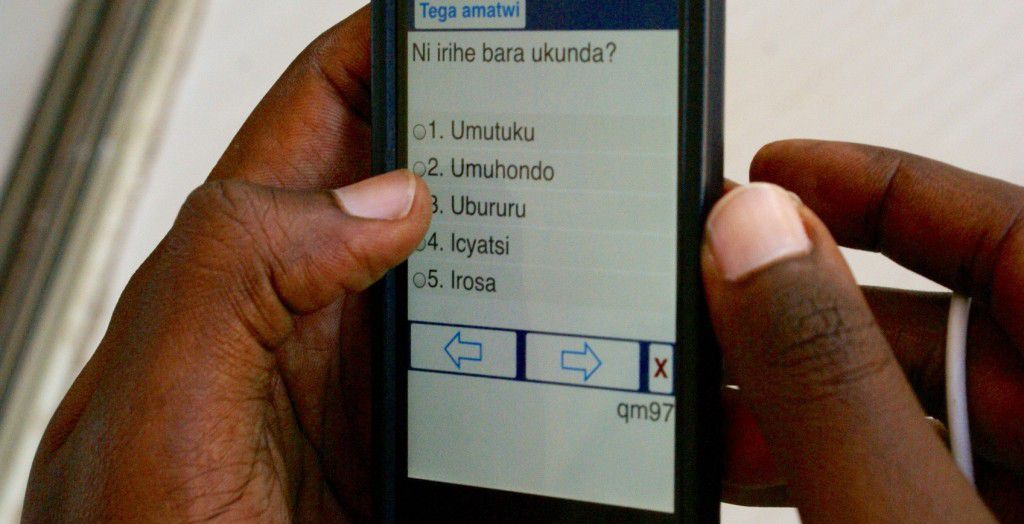On 17 September 2020, Laterite Data Manager Jean Baptiste Muhoza presented at a webinar hosted by the Mind & Behaviour Research Group (MBRG) at the University of Oxford. The webinar was co-presented by Claire Cullen and facilitated by Mahreen Mahmud, both from the University of Oxford. The topic of the webinar was: ‘Questions on sensitive topics that may be susceptible to biases if asked face-to-face’.
Jean Baptiste, Claire and Mahreen shared their experiences using list experiments and audio computer-assisted self-interviewing (ACASI) to survey respondents about sensitive topics in low- and middle-income country contexts.
Laterite has significant experience in this area, including through our work as data collection partner for the impact evaluation of the “Great Lakes Sexual & Gender-based Violence Prevention Program in Rwanda”. Jean Baptiste and Claire worked together on the endline and baseline evaluations of this project for the Ministry of Gender and Family Promotion (MIGEPROF) and the World Bank’s Africa Region Gender Innovation Lab (GIL). Laterite has used ACASI on several projects evaluating the effectiveness of programs to prevent sexual- and gender-based violence in Rwanda.
What is ACASI?
ACASI allows respondents to complete surveys themselves by listening to the automated audio recordings of questions using headphones connected to devices such as tablets or iPads. Respondents are then asked to choose colors or shapes that correspond to their answer, so that not even the enumerator knows the questions or the respondents’ answers. This way, ACASI does not require high levels of literacy. The method is also compatible with standard platforms used for electronic surveys such as SurveyCTO, making it straightforward to implement.
Best practices for using ACASI
Jean Baptiste recommends the following best practices for ACASI use:
- Use generic pictures as answer options for added confidentiality and to reach less literate populations
- Explain the process carefully to respondents to make sure they are comfortable using it on their own
- Testing is key, so set several practice questions to confirm respondents understand how the process works before moving into the sensitive subjects.
Learn more
Watch the full webinar on the Centre for the Study of African Economies (CSAE)’s Youtube channel.
You can read more about the technique in this blog from MBRG.
Read more about research measures at the intersection of behavioral economics and psychology on the MBRG website.
Throughout September, the Mind & Behaviour Research Group at the University of Oxford’s Centre for the Study of African Economies (CSAE) hosted a webinar series aimed at widening economists’ exposure to measurement techniques commonly used by behavioral economists in lab or real-world research settings. On Thursday 17 September, Laterite’s Jean Baptiste Muhoza presented together with Claire Cullen and Mahreen Mahmud from the University of Oxford on ‘Questions on sensitive topics that may be susceptible to biases if asked face-to-face’.
